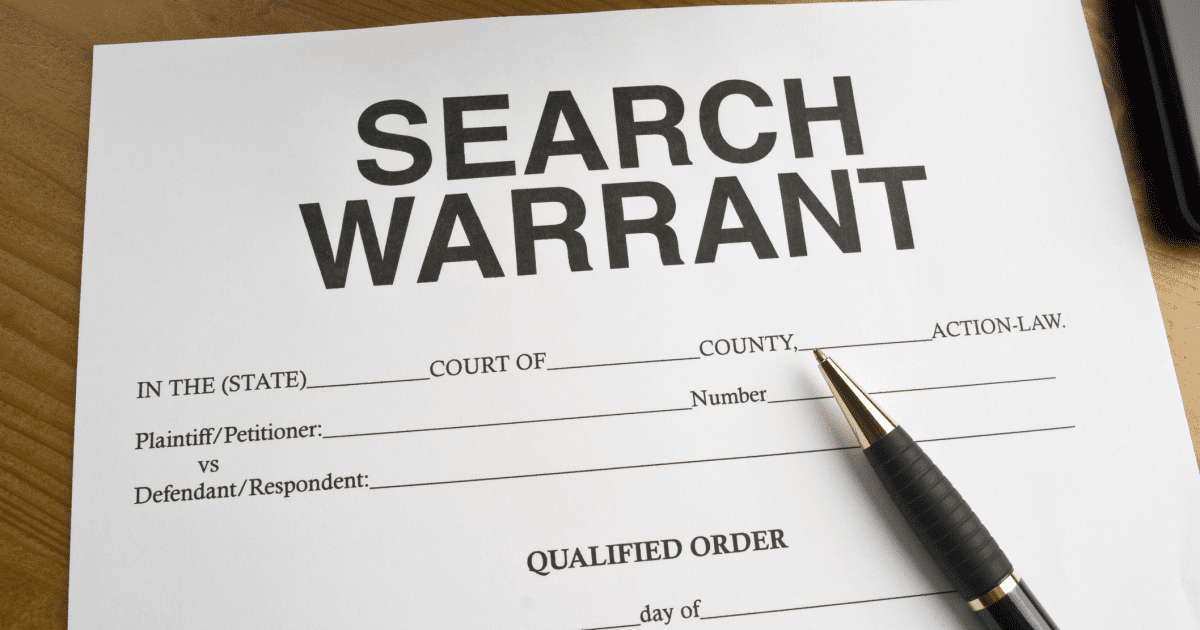Introduction – Tax Search Warrants
Canada’s federal Income Tax Act includes provisions that grant the Canada Revenue Agency (the “CRA”) a wide range of powers for administering and enforcing the Act. For instance, section 231.1 grants the CRA the power to tax audit and inspect the books and records of taxpayers and section 231.2 grants the CRA the power to require a taxpayer, or a third party, to provide documents and information upon request. These powers are applicable to CRA’s civil tax audits. However, a taxpayers’ rights under section 7 of the Charter of Rights and Freedom are engaged as soon as a criminal tax investigation in commenced by the CRA. In R v Jarvis, the Supreme Court of Canada set out the test for determining when a civil tax audit has metamorphosized into in a criminal tax investigation. In particular, the Supreme Court of Canada held that “wherever the predominant purpose of an inquiry or question is the determination of penal liability, all Charter protections that are relevant in the criminal context must apply.” When dealing with a criminal tax investigation the CRA can not rely on the administrative and enforcement powers available under sections 231.1 and 231.2 of the Income Tax Act. In context of criminal tax investigations, the CRA must obtain a search warrant under subsection 231.3(1) of the Income Tax Act. This article provides tax guidance related to tax search warrants.
Tax Search Warrant – Section 231.3 of the Income Tax Act
Subsection 231.3(1) of the Income Tax Act permits the CRA to make an ex parte application to a judge of a provincial superior court or a Federal Court judge for a warrant “to enter and search any building, receptacle or place for any document or thing that may afford evidence as to the commission of an offence under this Act”.
Pursuant to subsection 231.3(3), a judge may issue a search warrant where he or she is satisfied that there are reasonable grounds to believe that:
An offence under the Income Tax Act was committed;
A document or thing that may afford evidence of the commission of the offence under the Act is likely to be found; and,
The building, receptacle or place specified in the application is likely to contain such a document or thing.
Tax Search Warrant – Seizure, Retention, Return of Content
When a search warrant is issued, under subsection 231.3(1) of the Income Tax Act, it must specify the person authorized to enter and search the building, receptacle or place for the document or thing in question and bring it before, or report it to, the judge (who issued the search warrant) or another judge of the same court (Subsection 231.3(4), Income Tax Act). In addition, subsection 231.3(5) of the Income Tax Act permits any person executing a search warrant to seize “any other document or thing” that give evidence to any offence under the Act, in addition to the documents and things listed in the search warrant.
Subsections 231.3(6) and 231.3(7) of the Income Tax Act require the judge to determine whether, or not, the CRA is entitled to retain the seized materials. Specifically, subsection 231.3(6) requires a judge to make an order stating that, unless the CRA provides otherwise, the seized materials shall be retained by the CRA. Subsection 231.3(6) imposes an obligation on the CRA to take “responsible care” of the seized document or thing and to ensure that it is “preserved until the conclusion of any investigation into the offence in relation to which the document or thing was seized” or until such content is “required to be produced for the purpose of a criminal proceeding.”
Under subsection 231.3(7) of the Income Tax Act, a judge may order that the document or thing seized be returned to the person from whom it was seized or the person who is otherwise legally entitled thereto if the judge is satisfied that the document or thing:
Will not be required for an investigation or a criminal proceeding; or,
Was not seized in accordance with the warrant or section 231.3 of the Income Tax Act.
Tax Search Warrant – Taxpayers’ Access to Seized Content and Rights and Privileges During a Tax Search Warrant
Subsection 231.3(8) of the Income Tax Act allows the person from whom any document or thing is seized “at all reasonable times and subject to such reasonable condition” to inspect and obtain copies of such materials “at the expense of the Minister.”
However, it is difficult to provide exact tax guidance as to the time-period to which a judge may order documents and things seized (e.g., computers) to be “retained by the Minister” before they are returned to the person from who it was seized or the person who is otherwise legally entitled to such document or thing. In addition, the time-period pertaining to retention of documents or things seized may vary depending on relevant or external factors including, but not limited to, the scope of CRA’s criminal tax investigation or delays due to the COVID-19 pandemic. Accordingly, since records will normally be retained by the CRA for a lengthy period of time, it is important for taxpayers facing a potential tax search warrant to maintain off-site or cloud back up of all physical files and computer records, as they will also be seized.
It is important to note that a taxpayer’s computers and documents in an accountant’s files may also be retained by the CRA, along with the accountant’s working papers. However, in certain circumstances, solicitor-client privilege may be available for accountant-client correspondence if the accountant is retained by the lawyer to facilitate communications between the taxpayer and the Canadian tax lawyer or to provide the tax lawyer with information on behalf of the taxpayer. In Telus Communications Inc. v Canada (Attorney General) the Federal Court of Appeal held that advice that is communicated to a client through an agent acting for the client (e.g., the accountant) is privileged because the accountant was obtaining legal advice on behalf of the client.
It is highly recommended that when a search warrant is served the taxpayer should immediately retain a Canadian tax lawyer to ensure that all of their rights and privileges under subsection 232(1) of the Income Tax Act are preserved. In particular, subsection 232(1) on the Income Tax Act provides taxpayers the right to assert “solicitor-client privileges” and to “refuse to disclose an oral or documentary communication on the ground that the communication is one passing between the person and the person’s lawyer in professional confidence.”
Section 487 of the Criminal Code and Search Warrants
Subsection 487(1) of the Criminal Code also permits a judge to grant permission to an “interested person to examine detained or seized material”. Accordingly, instead of obtaining a section 231.1 search warrant, the CRA may proceed by way of obtaining a search warrant under subsection 487(1) of the Criminal Code. In Mandate Erectors and Weldings Ltd v The Queen, documents were seized pursuant to a subsection 487(1) Criminal Code search warrant. In this case, the taxpayer sought to prevent the CRA from continuing to retain and use copies of the documents seized in a criminal investigation on the grounds that the search warrant had been improperly issued. However, the court disagreed with the taxpayer and explained that no “irreparable harm” would be done if the taxpayer’s application is dismissed.
Pro Tax Tips – Tax Guidance and Tax Search Warrants
Tax search warrants can create immense financial consequences for businesses and their owners. Failure to comply with a search warrant provisions is an offence under subsection 238(1) of the Income Tax Act. A taxpayer who fails to provide the CRA with documents and things listed in a search warrant may be required to pay a penalty, pursuant to subsection 238(1). In addition, a taxpayer found guilty of an offence under subsection 238(1) of the Income Tax Act, in addition to any penalty, is liable on summary conviction to (a) a fine of not less than $10,000 and not more than $25,000; or (b) both a fine and imprisonment for a term not exceeding 12 months.
If you are the subject of a tax search warrant or a criminal tax investigation by the CRA, or if you are charged with an offence under subsection 238(1) of the Income Tax Act, please contact our tax law office for tax guidance from one of our top Canadian tax lawyers.
FAQ’s:
Do I really need to hire a tax lawyer if I am subject to a tax search warrant or a criminal tax investigation by the CRA?
Yes. It is highly recommended that when a search warrant is served, the taxpayer should immediately retain a Canadian tax lawyer to ensure that all of their rights and privileges under subsection 232(1) of the Income Tax Act are preserved.
If I’m audited by the CRA and I don’t have receipts, what do I do?
If you do not have receipts, you can still claim expenses on your tax return by including cancelled checks, credit or debit card statements, written records you create, calendar notations, and photographs. All is not lost even if you are missing some of these records at tax time.
Is tax evasion considered a criminal offense in Canada?
Tax evasion is a crime. Whether you cheat your taxes in Canada or hide assets or money abroad, the consequences are serious. There are financial consequences. Being convicted of tax evasion can result in fingerprinting, court ordered fines, jail time and a criminal record.
What does it mean when the CRA has the power to compel information?
The CRA’s power to compel information simply means that they have the ability to force a taxpayer to provide them with the information they asked for. However, you should note that the CRA’s power to compel information doesn’t always apply. There are still certain conditions that restrict them from using this power.
Are there limitations to the CRA’s tax search warrants?
Yes, there are limitations to the CRA’s tax search warrants. Only the things stated or listed in the search warrant can be collected by the CRA. However, if they believe that other things you have may serve as evidence of an offence under the Act, they can also take them.
When does a tax audit become a criminal tax investigation?
Tax audits are performed to assess a taxpayer’s records to look for errors in tax returns or whether there are signs of non-compliance with tax obligations. The CRA will usually look at the information they have and compare that information to similar files or consider information from other investigations or audits. Once they find that there are errors in the filed returns, they will ask the taxpayer to explain. If they deny it, the tax audit may turn to a criminal tax investigation.



